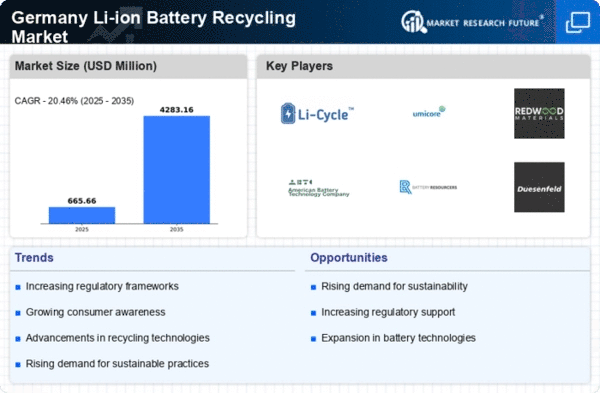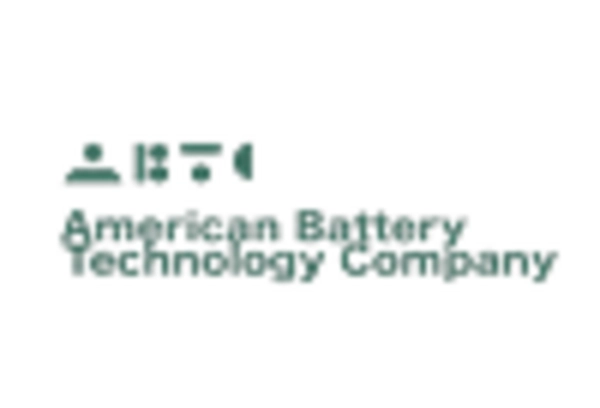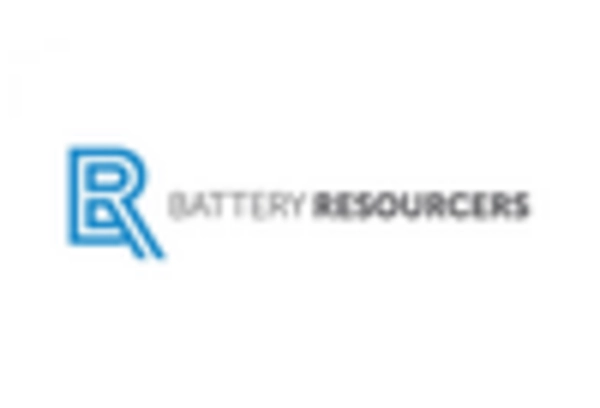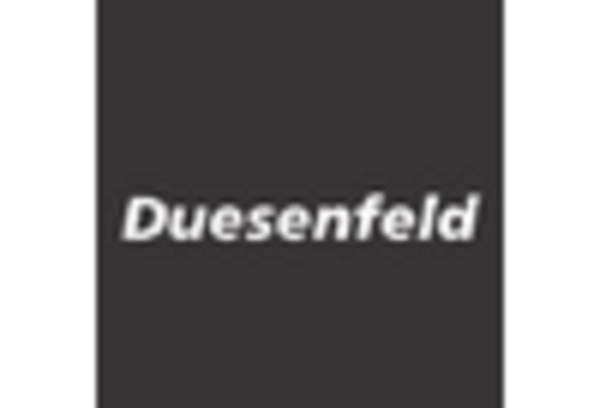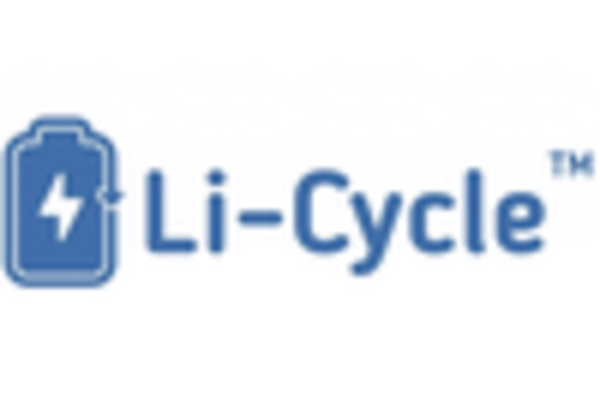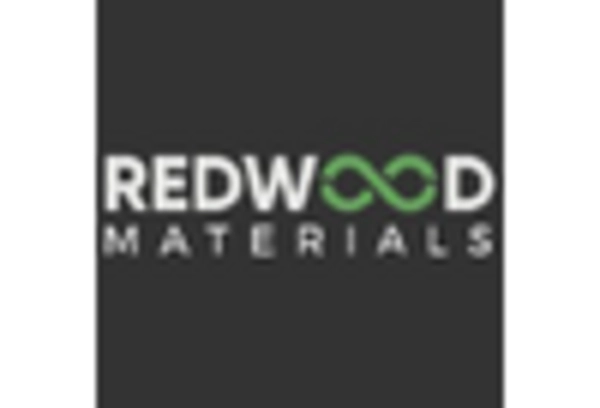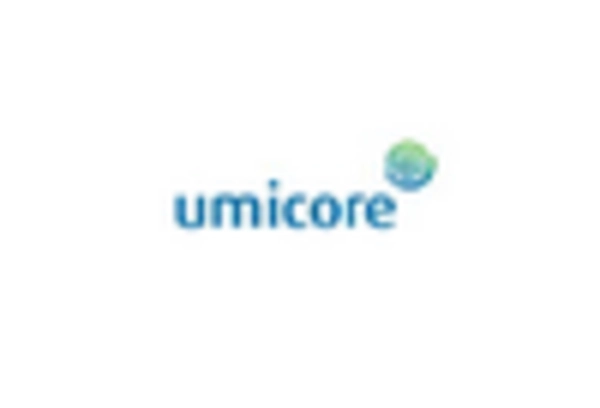Government Incentives and Policies
Government initiatives play a crucial role in shaping the li ion-battery-recycling market. In Germany, various policies and incentives are being implemented to encourage recycling practices. For instance, the Extended Producer Responsibility (EPR) framework mandates manufacturers to take responsibility for the entire lifecycle of their products, including end-of-life disposal. This regulatory environment is expected to drive the recycling rate of lithium-ion batteries, with estimates suggesting a potential increase to 60% by 2027. Additionally, financial incentives for recycling facilities and research grants for innovative recycling technologies are likely to stimulate market growth. As a result, the li ion-battery-recycling market is positioned to benefit from these supportive measures, fostering a more sustainable approach to battery disposal.
Increasing Environmental Awareness
The rising consciousness regarding environmental sustainability is a pivotal driver for the li ion-battery-recycling market. In Germany, public sentiment increasingly favors eco-friendly practices, leading to a surge in demand for recycling solutions. This trend is reflected in the German government's commitment to reducing waste and promoting circular economy principles. As a result, the recycling rate for lithium-ion batteries is projected to reach 50% by 2025, significantly impacting the market dynamics. The emphasis on reducing landfill waste and conserving natural resources further propels the need for efficient recycling processes. Consequently, companies in the li ion-battery-recycling market are likely to invest in innovative technologies to meet these growing expectations, thereby enhancing their market position.
Rising Demand for Renewable Energy Storage
The growing need for renewable energy storage solutions is significantly influencing the li ion-battery-recycling market. As Germany transitions towards a more sustainable energy landscape, the demand for efficient energy storage systems is on the rise. Lithium-ion batteries are increasingly utilized in renewable energy applications, such as solar and wind power, necessitating effective recycling solutions to manage the end-of-life phase of these batteries. The market is projected to expand as the integration of renewable energy sources continues to accelerate. By 2025, the demand for energy storage systems is expected to increase by 30%, further driving the need for recycling initiatives. This trend underscores the importance of establishing a robust recycling infrastructure to support the growing energy storage market.
Collaboration Between Industry Stakeholders
Collaboration among various stakeholders is emerging as a vital driver for the li ion-battery-recycling market. In Germany, partnerships between manufacturers, recyclers, and research institutions are fostering innovation and efficiency in recycling processes. These collaborations aim to develop new technologies and improve existing methods, thereby enhancing the overall sustainability of battery recycling. Industry stakeholders are increasingly recognizing the importance of sharing knowledge and resources to address common challenges. This cooperative approach is likely to lead to the establishment of standardized practices and regulations, which could streamline operations within the market. As a result, the li ion-battery-recycling market is expected to benefit from enhanced operational efficiencies and improved recovery rates.
Technological Innovations in Recycling Processes
Technological advancements are transforming the li ion-battery-recycling market, particularly in Germany. Innovations in recycling processes, such as hydrometallurgical and pyrometallurgical methods, are enhancing the efficiency and effectiveness of battery recovery. These technologies enable the extraction of valuable materials like lithium, cobalt, and nickel, which are essential for new battery production. The market is witnessing a shift towards more sustainable practices, with companies investing in research and development to improve recycling yields. As a result, the overall recovery rate of materials from lithium-ion batteries is expected to increase, potentially reaching 90% by 2030. This trend not only supports resource conservation but also reduces the environmental impact associated with battery disposal.


